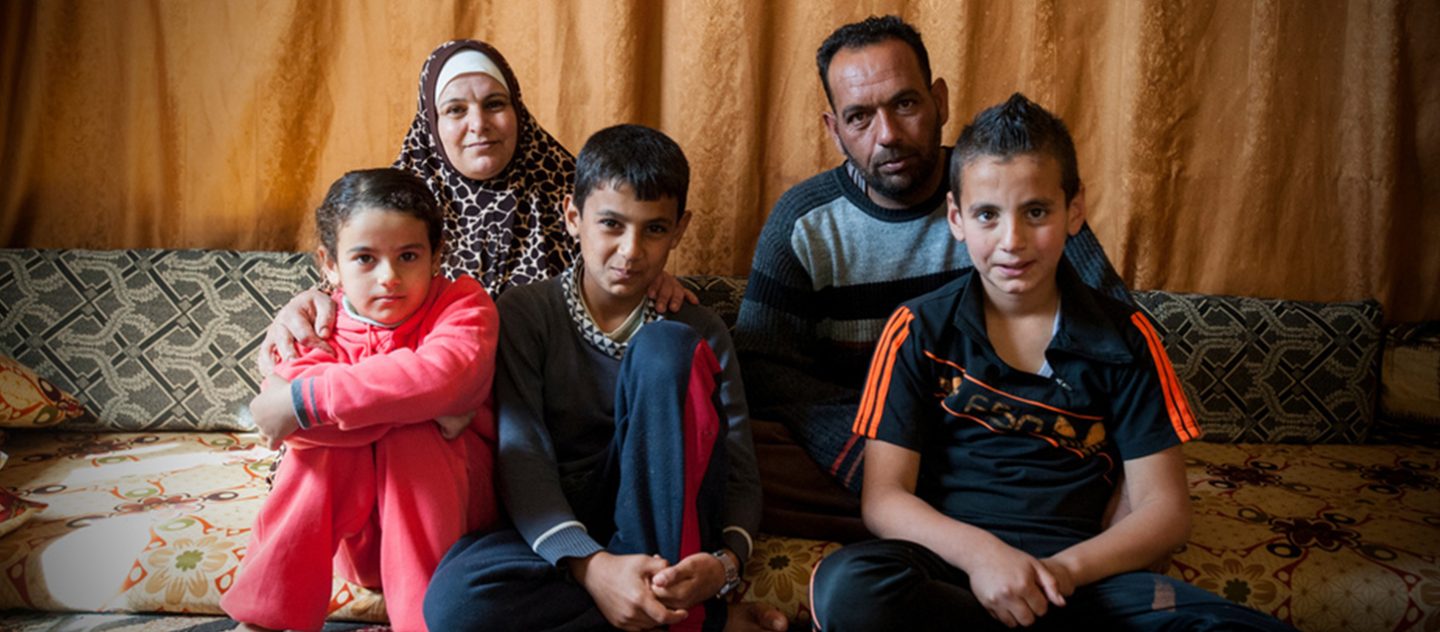States protect the rights of their citizens. But when people become refugees this safety net disappears.
Refugees fleeing war or persecution can be very vulnerable. They have no protection from their own state and it is often actors of their own state that is persecuting rather than protecting them.
At UNHCR, we seek to uphold the basic human rights of uprooted people in countries to which they have fled and seek to ensure that refugees will not be returned involuntarily to a country where they could face persecution. Longer-term, we also work to find solutions, by supporting voluntary repatriation, local integration in countries of asylum or resettlement and complementary safe pathways to third countries.
Promoting Refugee Protection
Our activities to promote refugee protection include:
- Promoting accession to the 1951 Convention relating to the Status of Refugees and its 1967 Protocol, to the 1954 Convention relating to the Status of Stateless Persons and to the 1961 Convention on the Reduction of Statelessness.
- Assisting States to enact or revise national refugee legislation, including administrative instructions and operational guidelines, and to implement national refugee status determination procedures.
- Strengthening relevant administrative and judicial institutions, training staff of government and non-governmental agencies, and liaising with relevant human rights bodies.
Registration and Refugee Status Determination
- The Directorate General of Migration Management (DGMM), as the national authority established by the Law on Foreigners and International Protection, is responsible for registering and processing temporary and international protection applications in Turkey. UNHCR has provided support to DGMM during its establishment, including with registration of international protection applicants and referral processes. As of 10 September 2018, UNHCR stopped registering foreigners wishing to apply for international protection in Turkey, but continues to support the registration capacity of DGMM. In close consultation with DGMM, UNHCR continues case processing within the context of resettlement considerations.
- Pursuant to the Law on Foreigners and International Protection, foreigners who would like to apply for temporary and international protection in Turkey shall approach the Provincial Directorates of Migration Management (PDMM) in the cities upon entry to the country. PDMMs will initiate and undertake registration and further processing of the international protection applications lodged by individuals.
- UNHCR continues to provide counseling services, to refugees and asylum-seekers in Turkey..
- In strengthening national registration and international protection procedure, UNHCR works closely with DGMM and provides technical and material support.
Child Protection
The Child Protection Law 5395 which entered into force in 2005 presents a comprehensive legal framework on the protection of all children in Turkey regardless of their legal status. Within the framework of the Law, the State provides care and protection to children, including to refugee children, who are subject to abuse, neglect, exploitation and violence, as well as unaccompanied and separated children.
UNHCR works closely with the governmental counterparts, including the Ministry of Family, Labour and Social Services (MoFLSS) and the Directorate General of Migration Management (DGMM) to support identification of children at risk and responses in the best interests of the children. To this end, UNHCR also conducts, jointly with partners, best interests procedures with a view to making referrals to relevant government stakeholders for their interventions. UNHCR provides capacity development support to partners involved in child protection concerning refugees, including on best interests procedures.
Prevention and response to Sexual and Gender Based Violence
Sexual and Gender based Violence (SGBV) is a violation of human rights. UNHCR is committed to ending all forms of SGBV by working to prevent SGBV before it happens, mitigate the risks across its programmes and responding to the needs of all survivors, be they women, girls, men or boys.
UNHCR works closely with government counterparts, humanitarian actors and refugee community members to reduce the risks of SGBV and ensure support is available for survivors. We do this by strengthening the capacity of counterparts, promoting effective coordination between relevant stakeholders and through engaging community members and local organizations in SGBV prevention, mitigation and response.
UNHCR promotes information and awareness on prevention and response mechanisms which in return contributes to the identification of survivors and individuals at risk of SGBV and facilitates their access to state-provided services. Additionally, UNHCR provides targeted cash-based support to survivors and persons at risk of SGBV as a way to address their immediate protection needs while pursing longer term solutions in close coordination with partners.
Community Engagement
UNHCR is committed to harness the knowledge and resources of communities and strengthen their capacities. UNHCR puts the capacities, agency, rights and dignity of persons of concern at the centre of its programming and strives to partner with persons, families and communites who are in need of international protection.
UNHCR builds on the community’s existing capacities and community members’ sense of volunteerism by investing in trust-building engagement and supporting two way communication. Established community networks, along with refugee peer-to-peer support groups, committees and refugee-led community-based organizations supported by UNHCR across Turkey are in a strong position to protect and support their communities and promote social cohesion with host communities.

